IF DIVINATION, KNOWLEDGE, POWER, AND PERFORMANCE
AFRICAN EXPRESSIVE CULTURES
Patrick McNaughton, editor
Associate editors
Catherine M. Cole
Barbara G. Hoffman
Eileen Julien
Kassim Kon
D. A. Masolo
Elisha Renne
Z. S. Strother
IF DIVINATION, KNOWLEDGE, POWER, AND PERFORMANCE
Edited by Jacob K. Olupona and Rowland O. Abiodun

This book is a publication of
Indiana University Press
Office of Scholarly Publishing
Herman B Wells Library 350
1320 East 10th Street
Bloomington, Indiana 47405 USA
iupress.indiana.edu
2016 by Indiana University Press
All rights reserved
No part of this book may be reproduced or utilized in any form or by any means, electronic or mechanical, including photocopying and recording, or by any information storage and retrieval system, without permission in writing from the publisher. The Association of American University Presses Resolution on Permissions constitutes the only exception to this prohibition.
The paper used in this publication meets the minimum requirements of the American National Standard for Information SciencesPermanence of Paper for Printed Library Materials, ANSI Z39.481992.
Manufactured in the United States of America
Library of Congress Cataloging-in-Publication Data
Ifa divination, knowledge, power, and performance / edited by Jacob K. Olupona and Rowland O. Abiodun.
pages cm (African expressive cultures)
Papers from a conference held March 1316, 2008 at Harvard University.
Includes bibliographical references and index.
ISBN 978-0-253-01882-3 (cloth : alk. paper) ISBN 978-0-253-01890-8 (pbk. : alk. paper) ISBN 978-0-253-01896-0 (ebook) 1. Ifa (Religion) 2. Yoruba (African people)Religion. 3. Divination. 4. Orisha religion. 5. Afro-Caribbean cults. 6. Ifa (Religion)Art. I. Olupona, Jacob K. (Jacob Kehinde), 1951 editor. II. Abiodun, Rowland, editor. III. Series: African expressive cultures.
BF1779.I4I347 2016
299.6'8333dc23
2015033418
1 2 3 4 5 21 20 19 18 17 16
Dedicated to a distinguished scholar of If Studies,
Professor Wnd Abmbl,
and in memory of a pioneer of If Studies,
Professor William R. Bascom (19121981)
If l ln
If l lla
If l ltnla pl
 rnml l nij mrrin s dy.
rnml l nij mrrin s dy.
If is the master of today
If is the master of tomorrow;
If is the master of the day after tomorrow.
To If belongs all the four days
Established by s on earth.
Wnd Abmbl, If: An Exposition of If Literary Corpus
Contents
/ Jacob K. Olupona and Rowland O. Abiodun
/ Jacob K. Olupona and Rowland O. Abiodun with Niyi Afolabi
/ Ayo Opefeyitimi
/ Wnd Abmbl
/ Andrew Apter
/ Olasope O. Oyelaran
/ Adlk Adk
/ Barry Hallen
/ Olfmi Tw
/ Rowland O. Abiodun
/ Mei-Mei Sanford
/ Wyatt MacGaffey
/ Aknwm la
/ Jacob K. Olupona
/ Velma Love
/ John Mason
/ Joseph M. Murphy
/ Ysamur M. Flores-Pea
/ Stefania Capone
/ M. Ajisebo McElwaine Abimbola
/ Kamari Maxine Clarke
/ Philip M. Peek
/ Bolaji Campbell
/ Laura S. Grillo
/ Henry John Drewal
/ Akintunde Akinyemi
Foreword
I AM DELIGHTED TO know that this bookthe result of a fascinating three-day conference on If tradition at Harvard University in 2008will now be available for all to read and enjoy. As the Ooni of Ife, it was indeed an honor for me and my fellow Obaincluding the Owa Obokun of Ijesa Land, Oba Agunlejika, and the governor of Osun State, Prince Oyinlolato be active participants in the deliberations over many important aspects of If by a worldwide gathering of distinguished scholars, practitioners, and devotees of If. There was not a dull moment throughout the conference; we all left with the feeling of giving credence to the beloved If lyrics, If will not perish from the face of the Earth.
Traditional rulers and priests of If in Yorbland have long recognized Ifs multicomplexitiesits religious, philosophical, and cultural traditionsand have, within their power and resources, supported efforts to enlighten the world about If and its relevance to all facets of life, irrespective of race, color or peoples religious persuasion. Perhaps the most alluring and delightful aspect of Yorb religious tradition and culture bequeathed to us is the comprehensive oral narrative comprising the 256 od Corpus of Poetryan encyclopedia of knowledge. Equally impressive is the artistic legacy associated with If divination practice. Artifacts used in If divination can now be found in major museums in the West and many parts of the world. For example, in the Ulmer Museum in Ulm, Germany, there is a most beautiful If divination tray that was collected as early as the eighteenth century.
The patron divinity of the If divination system is Orunmila (with aliases that include Agboniregun, Okunrin-kukuru Oke-Geti, Agiri-ile-ilogbon), who made Ile-Ife his home, and he is celebrated to this day at Oke-Tase with elaborate annual festivals that attract If priests from all over the world. Orunmila was the only witness at creation, which means that his own creation must have preceded those of other orishas. More importantly, he has the unique advantage of knowing the destinies of everyone and is equipped with the language to express them. Orunmila is a polyglot, which has earned him the praise name, Afedefeyo (one who speaks and understands all tongues). He is also capable of resolving conflicts and bringing peace and order into the universe, for which reason he is called and known as Agbayegun. Despite their sometimes nominal conversion to Islam and Christianity, the Yorb continue to cherish If traditions, which play pivotal roles in daily life and govern the social and economic fabric of traditional and modern Yorb society.
The chapters in this volume touch on various themes and topics providing deep-seated knowledge of If traditions. Together they point to the rich depth of scholarship of the presenters. From discussion of myths and rituals to the intersections of If and Islamic traditions; from historical accounts to artistic performances of If in the Caribbean and throughout the AmericasIf has endured. All these legacies point to the global reach and significance of If tradition, confirming what scholars of Yorb cultures have been saying all alongthat their own tradition is a world culture deserving to be placed alongside other world cultures in the global cultural hall of fame. Of course, UNESCOs recognition of Osun Osogbo Sacred Grove as a World Global Heritage Site testifies to the richness of Yorb culture and traditions. I wholeheartedly recommend this volume to readers and scholars everywhere. It provides numerous platforms from which young scholars can now launch their future research projects on If.
I am most pleased that the Harvard conference provided an opportunity for the world community of scholars to honor two most influential scholars of If tradition: Professor Wnd Abmbl, whose If chieftaincy title, Awise Awo Agbaye, attests to his exalted position among members of the kings inner circle of palace senior diviners (Awo-Ooni), and the late William Bascom, anthropologist at the University of California, Berkeley, whose pioneering research opened up Yorb studies for others to follow. Professor Abmbl remains the most knowledgeable scholar-practitioner of If in his generation. This is a most valuable and illuminating work on an African divinatory tradition and practice.
Next page

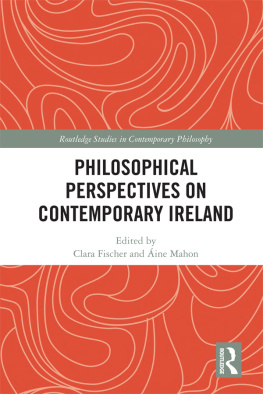
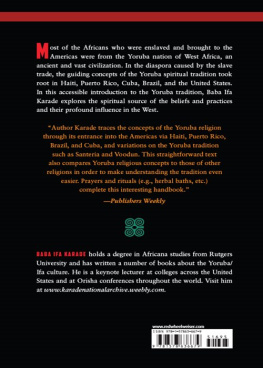
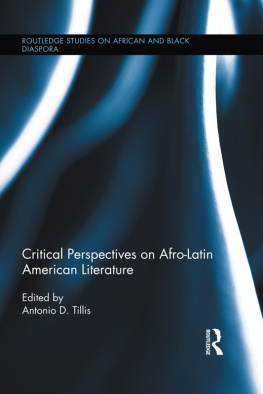
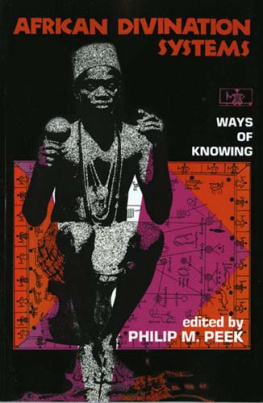
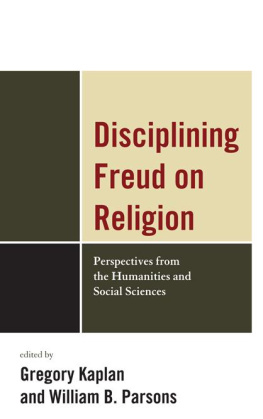
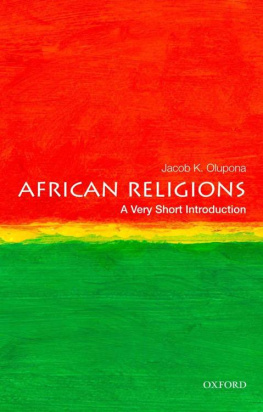
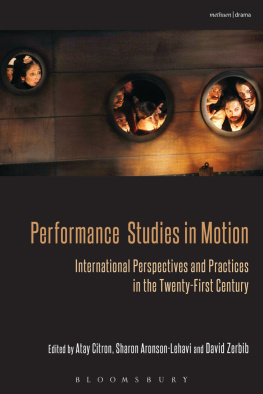


 rnml l nij mrrin s dy.
rnml l nij mrrin s dy.